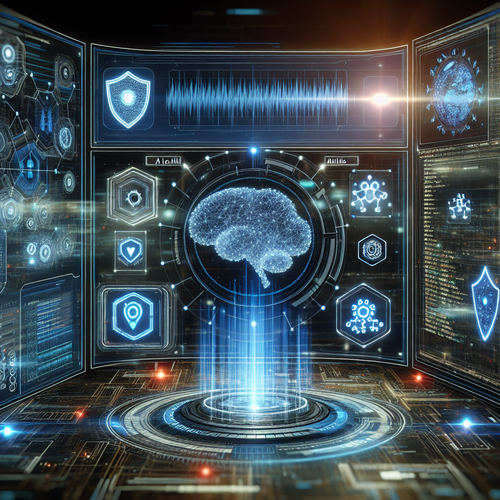
Harnessing AI for Enhanced Cybersecurity Strategies
Harnessing AI for Enhanced Cybersecurity Strategies
In a world increasingly reliant on technology, cybersecurity has become a paramount concern for businesses and individuals alike. As cyber threats evolve, so must the strategies to combat them. This is where Artificial Intelligence (AI) comes into play, providing innovative solutions to protect against cyber attacks.
Understanding the Role of AI in Cybersecurity
AI refers to the simulation of human intelligence in machines that are programmed to think and learn. In cybersecurity, AI can analyze vast amounts of data at unparalleled speeds, identifying patterns and anomalies that signify potential threats. This capability is critical in today’s digital landscape, where cyber threats are not only more frequent but also increasingly sophisticated.
Predictive Threat Modeling
One of the most significant advantages of AI in cybersecurity is its ability to conduct predictive threat modeling. Traditional security measures often react to breaches after they occur. However, through machine learning algorithms, AI can analyze historical data to predict future threats, enabling proactive responses. Companies can implement AI-driven systems that learn from previous attacks, helping to shore up defenses against similar incursions in the future.
Real-Time Monitoring and Response
AI technologies can significantly enhance real-time monitoring capabilities. With tools designed to monitor network traffic, AI can detect unusual behavior that may indicate a cyber attack. This includes identifying spikes in data transfers, unusual login attempts, or accessing sensitive information outside of normal parameters.
- Improved Incident Response: AI can not only identify incidents but can also help orchestrate responses. By automating alerts and responses, businesses can reduce the time it takes to act on a potential threat.
- Decreased Response Times: A rapid response is crucial in minimizing the damage caused by an attack. AI can streamline processes and take immediate actions, allowing IT teams to focus on strategic responses instead of getting bogged down by manual monitoring.
Challenges in Implementing AI Solutions
While AI provides many benefits, its integration into cybersecurity strategies is not without challenges. Concerns over privacy, data security, and the potential for bias in AI algorithms must be addressed. Moreover, organizations must ensure that their systems are designed to work collaboratively with AI and not simply rely on it as a standalone solution.
Case Studies: Successful AI Implementations
Numerous organizations have successfully integrated AI into their cybersecurity frameworks, realizing significant improvements in their security postures. For instance, leading tech companies have reported reduced incident response times and increased detection rates of potential threats by employing AI-driven security solutions.
To learn more about how AI is reshaping the future of cybersecurity, take a look at our previous post on How AI is Enhancing Cybersecurity in 2023.
Conclusion
As cyber threats continue to evolve, incorporating AI into cybersecurity strategies will be crucial for organizations all over the world. Whether through predictive analytics, automated responses, or real-time monitoring, AI can dramatically enhance a company’s ability to defend itself against cyber attacks. By staying ahead of these trends and utilizing innovative technologies, businesses can secure a safer digital future.















